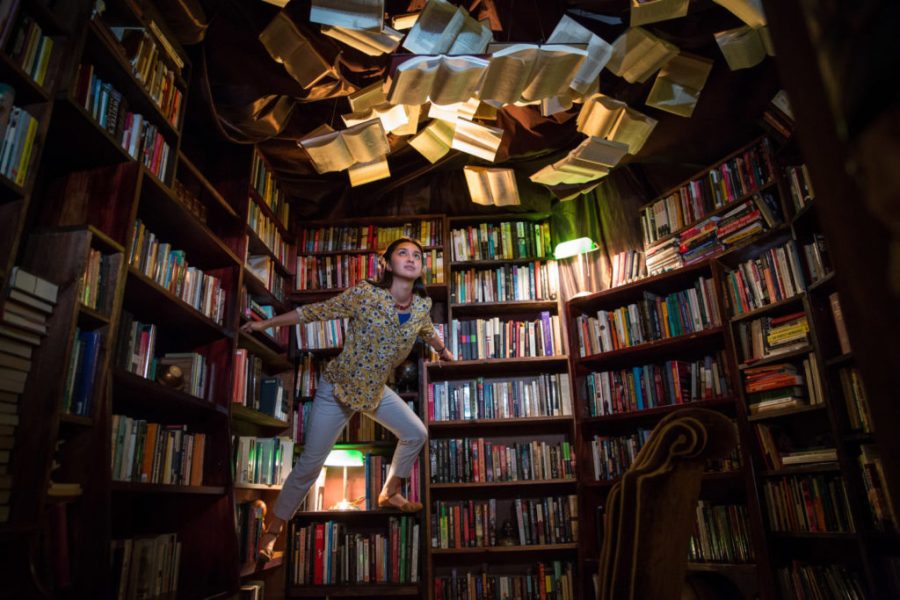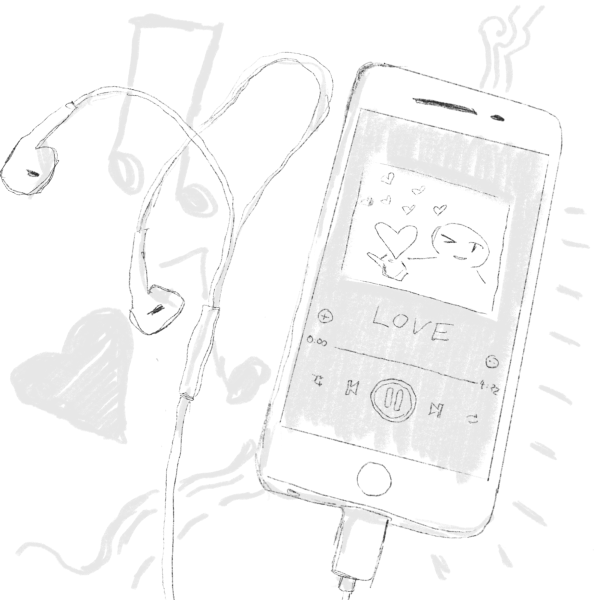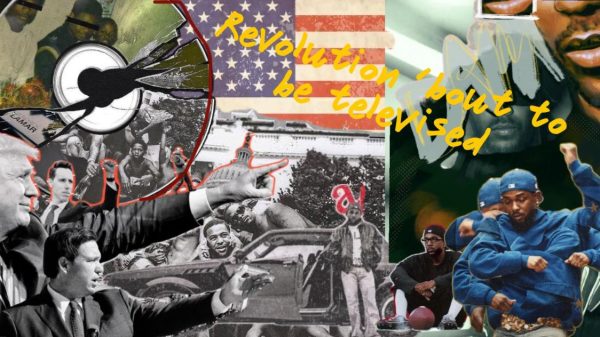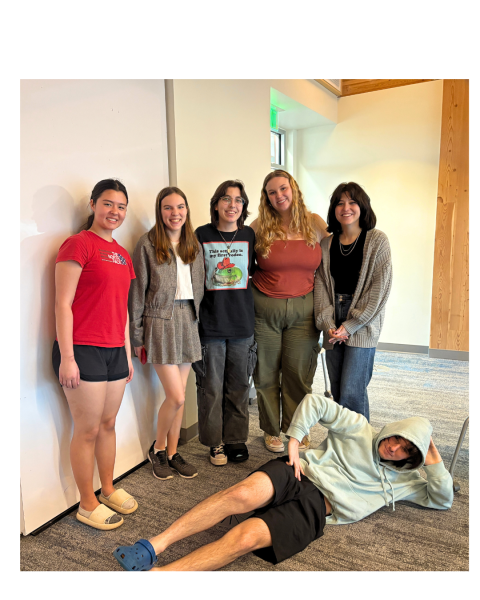Immersive theater group visits Trinity
Third Rail Projects explores the boundaries of theater
Third Rail Projects, a group based out of New York that creates site-specific, immersive and experiential performances, visited Trinity University’s campus from April 22 through 30. The group hosted a workshop open to all Trinity students and presented a Stieren Arts Enrichment Series Guest Lecture featuring Jennine Willett, Co-Artistic Director of Third Rail Projects, on April 24 at 7 p.m. in the Stieren Theater.
Willett, along with Edward Rice and Marissa Nielsen-Pincus, two of her colleagues from Third Rail Projects, hosted a workshop centered around immersive theater processes. The workshop involved core elements of immersive theater, including movement exercises and working in site-specific places. Focusing on the ways theater can be presented in a space that is not traditionally used for theater, the workshop utilized found spaces in the Ruth Taylor Theater building, including prop storage spaces and utility rooms.
Different from more traditional theater settings, immersive theater breaks down the boundaries between audience members and actors. Instead of an audience sitting in a theater watching a show on stage, immersive theater involves the audience walking around a space or environment with the show, allowing for more intimate interactions during scenes.
Tamara Ekstrand, a junior theater and English major, hesitated to label the performers as actors.
“I’m not sure if we’re necessarily playing characters and doing a role really, which is what I think when I think of the word actor,” Ekstrand said.
The progress made with students participating in the workshop will culminate in two immersive performances. Both showings are on April 30, one at 4 p.m. and one at 7 p.m. The public showcases are presented as works-in-progress, due to the amount of time required to produce a polished production.
Students in the workshop learned new techniques and practices, including the process Third Rail Projects uses. Ekstrand said that part of the process included thinking about the concept of persona.
“We thought about public personas and private personas, and we made this map of measurables associated with the idea of persona, including words, actions, scenarios and places,” Ekstrand said.
Sydney Crowther, a junior psychology major, spoke about interacting with other students during the creative process.
“I’m sure I’ll learn more about my creative process, a lot about how I interact with others in that creative space. … The collaboration is so important for the project,” Crowther said.
Scott Neale, associate professor of scenic design at Trinity University, began professionally working with Third Rail Projects in New York in 2015. Neale said that, as opposed to traditional theater, immersive theater allows space for immediate audience feedback and interaction. Third Rail Projects typically does not involve a lot of dialogue in their performances but instead relies on movement-based interactions with the audience.
“There are variables depending on how the audience member reacts. … Not everyone gets the same show. You get split off into different directions. Some people go this way, some people go that way. Some moments you are in a one-on-one scene, so [the experience] drastically varies depending on the scene,” Neale said.
As far as set design goes, Neale said that the Third Rail Projects production at Trinity will mostly utilize found spaces and objects.
“The design is about curating a space more so than creating a world from the ground up,” Neale said.
The costuming for the show will also be minimal, as the eight-day workshop doesn’t allow for the production of a fully supported design.
Immersive theater has been around for a long time but has gained popularity in the last 10-15 years. Neale explained that one of the potential benefits of immersive theater includes expanding our understanding of theater.
“So much of our lives are through a screen these days,” said Neale. “It’s fun and comfortable, and you don’t have to worry about going anywhere, but I think the adverse effect of that is that people are craving realness. … With immersive theater, the audience is given the power to impact the outcome of the story. It is a really strong thing for the audience members to be able to pick up and interact with their surroundings and is something that I think people are especially craving.”
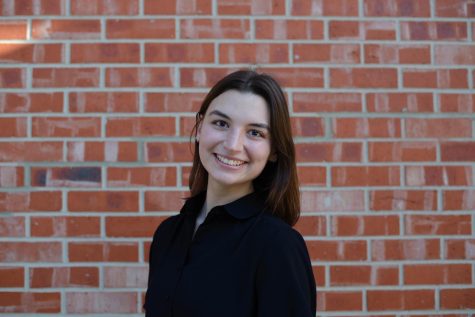
My name is Ashley Allen and I am a senior completing a BA in art history at Trinity University, with a minor in Medieval and renaissance Studies. I hope...

